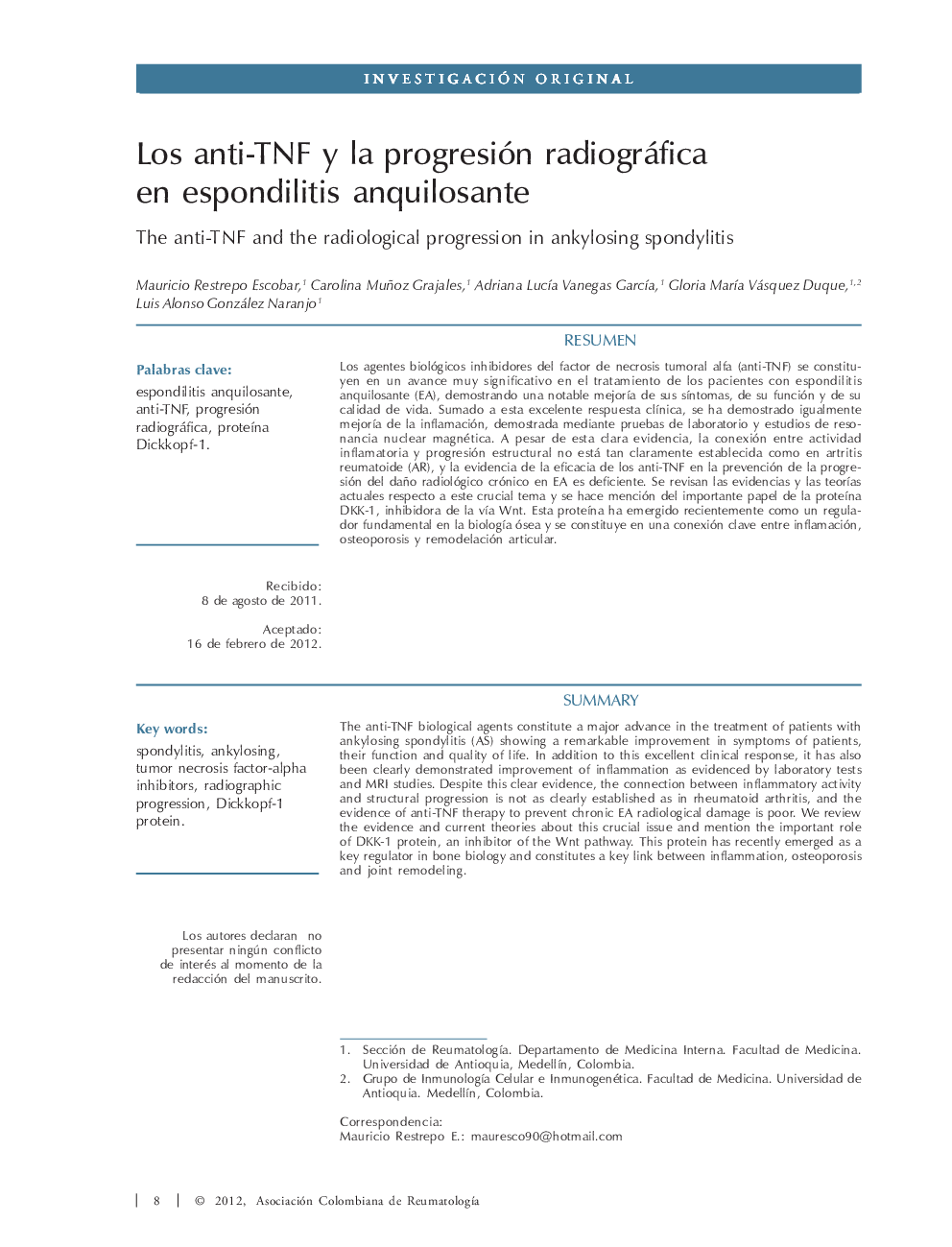| Article ID | Journal | Published Year | Pages | File Type |
|---|---|---|---|---|
| 3385637 | Revista Colombiana de Reumatología | 2012 | 10 Pages |
Abstract
The anti-TNF biological agents constitute a major advance in the treatment of patients with ankylosing spondylitis (AS) showing a remarkable improvement in symptoms of patients, their function and quality of life. In addition to this excellent clinical response, it has also been clearly demonstrated improvement of inflammation as evidenced by laboratory tests and MRI studies. Despite this clear evidence, the connection between inflammatory activity and structural progression is not as clearly established as in rheumatoid arthritis, and the evidence of anti-TNF therapy to prevent chronic EA radiological damage is poor. We review the evidence and current theories about this crucial issue and mention the important role of DKK-1 protein, an inhibitor of the Wnt pathway. This protein has recently emerged as a key regulator in bone biology and constitutes a key link between inflammation, osteoporosis and joint remodeling.
Related Topics
Health Sciences
Medicine and Dentistry
Immunology, Allergology and Rheumatology
Authors
Mauricio Restrepo Escobar, Carolina Muñoz Grajales, Adriana LucÃa Vanegas GarcÃa, Gloria MarÃa Vásquez Duque, Luis Alonso González Naranjo,
